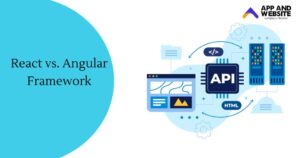In today’s digital age, mobile applications have become integral to our lives. From ordering food to booking cabs, everything is just a tap away. The increasing reliance on smartphones has amplified the importance of mobile apps in both personal and professional spheres. Hence, understanding the process of creating a mobile app is paramount for anyone looking to venture into app development.
How To Create a Mobile App in 10 Steps
Discover the essential steps to create a mobile app from scratch in just 10 easy steps. Whether you’re a novice or a seasoned developer, this guide covers everything from ideation and design to testing, launching, and marketing strategies. Unlock the secrets to crafting a successful app that resonates with your audience and stands out in the competitive app market. More about creating a Mobile app in the 10 Steps below:
1. Define Your Idea
The foundation of any successful mobile app lies in a compelling idea. Start by identifying a problem that your app will solve or a need that it will fulfill. Your idea should be unique and address a gap in the market to stand out among the plethora of existing apps.
2. Plan Features and Functionality
Once you have a clear idea, outline the features and functionalities your app will offer. Arrange them in order of priority according to how important and relevant they are to your specific audience. A well-planned feature set ensures that your app remains focused and user-friendly.
3. Research Competitors
Conduct thorough research to understand your competitors’ strengths and weaknesses. Analyze their apps to identify opportunities for differentiation and improvement. Learning from existing solutions can help you refine your app concept and strategy.
4. Design Wireframing and Prototyping
Design the user interface (UI) and user experience (UX) of your app through wireframing and prototyping. This step involves creating visual representations of your app’s layout, navigation, and interactions. Prototypes allow you to gather feedback and iterate on your design before moving forward.
5. Choose Development Technology
Select the appropriate technology stack for developing your app based on factors like scalability, platform compatibility, and development time. Whether you opt for native, hybrid, or cross-platform development, ensure that your chosen technology aligns with your app’s requirements and long-term goals.
6. Development Phase
With a solid plan in place, proceed to the development phase of your app. Collaborate with skilled developers to translate your design and functionality into code. Regular communication and testing are crucial during this phase to address any issues and ensure smooth progress.
7. Testing and Quality Assurance (QA)
Thorough testing is essential to identify and rectify bugs, glitches, and usability issues in your app. Perform various types of testing, including functional testing, usability testing, and performance testing, to ensure that your app meets quality standards and delivers a seamless user experience.
8. Launch The Application
Once your app is thoroughly tested and polished, it’s time to launch it on the respective app stores (such as the Apple App Store and Google Play Store). Prepare compelling app descriptions, screenshots, and promotional materials to attract users and maximize downloads.
9. Promote & Market App
Effective marketing is crucial to make your app stand out amidst the competition. Utilize various marketing channels, such as social media, influencer partnerships, and app store optimization (ASO), to increase visibility and acquire users. Engage with your target audience and gather feedback to continuously improve your app.
10. Maintenance and Updates
Launching your app is just the beginning of your journey. Regularly track user feedback and app performance to pinpoint opportunities for enhancement. Regularly release updates with new features, bug fixes, and enhancements to keep your app relevant and competitive in the ever-evolving app market.
Things To Know Before Developing A Mobile App From Scratch
Before diving into app development, it’s essential to understand the complexities and challenges involved. From technical considerations to budget constraints, here are some key factors to consider:
1. Market research and validation
Proper market research and validation play a vital role in the creation of a thriving mobile app. This involves examining target markets, competitors, and industry trends to ensure that the app satisfies user needs. Validation methods like prototype testing, user surveys, and market testing assist in refining the app’s concept and measuring user interest. By conducting comprehensive research and validation, developers can improve the chances of developing a viable and successful app in the competitive app market.
2. Budget planning and resource allocation
Effective mobile app development requires careful budget planning and resource allocation. This involves estimating costs for design, development, marketing, and maintenance, as well as distributing human, financial, and technological resources effectively. By considering team composition, skill sets, time management, and risk mitigation strategies, you can ensure efficient development and successful app deployment within your budget. Effective budgeting and resource allocation are crucial for optimizing the development process and achieving your project goals.
3. Selecting the appropriate development methodology and technological framework
The success of a project heavily relies on choosing the appropriate development methodology. Whether it’s Agile or Waterfall, selecting the right approach that fits the project’s requirements and team dynamics is crucial. Similarly, when deciding on a technological framework, factors like app complexity and target platforms should be taken into account. These choices are essential for optimizing development processes, enhancing collaboration, and ultimately achieving the successful delivery of a mobile app.
4. Legal and regulatory requirements
Making a working app is only one aspect of developing a mobile app. Legal and regulatory factors must be incorporated into the process. This entails creating robust data privacy policies, securing the necessary authorisations for data processing and gathering, and putting safety precautions in place for user data. Developers should also audit their projects on a regular basis to make sure they are complying with new rules and regulations. Developers can lessen legal concerns and promote transparency and confidence with users by doing this.
Why Choose an App and Web Company For Developing An App From Scratch?
Choosing an app and web development company like “App and Website” for building your app from scratch offers several advantages:
- Comprehensive Expertise: These companies specialize in both app and web development, ensuring they have the necessary expertise in various technologies and platforms. This allows for a more holistic approach to your project, covering both mobile and web aspects seamlessly.
- Unified User Experience: By developing both the app and web components under one roof, you ensure consistency in design, functionality, and user experience across different platforms. This cohesive approach leads to better user engagement and satisfaction.
- Efficiency and Cost-effectiveness: Working with a single company for both app and web development streamlines the process, reducing communication overhead and potential misunderstandings between different teams. This often translates to faster development cycles and lower costs.
- Cross-platform Integration: App and web companies are well-versed in integrating various technologies and APIs, allowing for seamless data exchange and synchronization between the app and web versions of your product. This integration enhances the overall functionality and usability of your application.
- Scalability and Future-proofing: Building your app with a company that specializes in both app and web development ensures that your product is scalable and adaptable to future technological advancements. This future-proofing is crucial for staying competitive in the ever-evolving digital landscape.
- Support and Maintenance: After the initial development phase, ongoing support and maintenance are essential for keeping your app running smoothly. App and web companies typically offer comprehensive support packages, ensuring that any issues or updates are promptly addressed.
In conclusion, choosing an app and web development company like “App and Website” provides a one-stop solution for building a high-quality, cohesive app from scratch. Their expertise, efficiency, and ability to deliver a unified user experience make them a compelling choice for your development needs.
Conclusion
Developing a mobile app from scratch may seem daunting, but by following these 10 steps and considering the essential factors discussed, you can embark on this journey with confidence. Remember that success in app development requires dedication, creativity, and a deep understanding of your target audience’s needs and preferences. Keep innovating, iterating, and learning from both successes and failures to create a valuable and impactful app that resonates with users.






